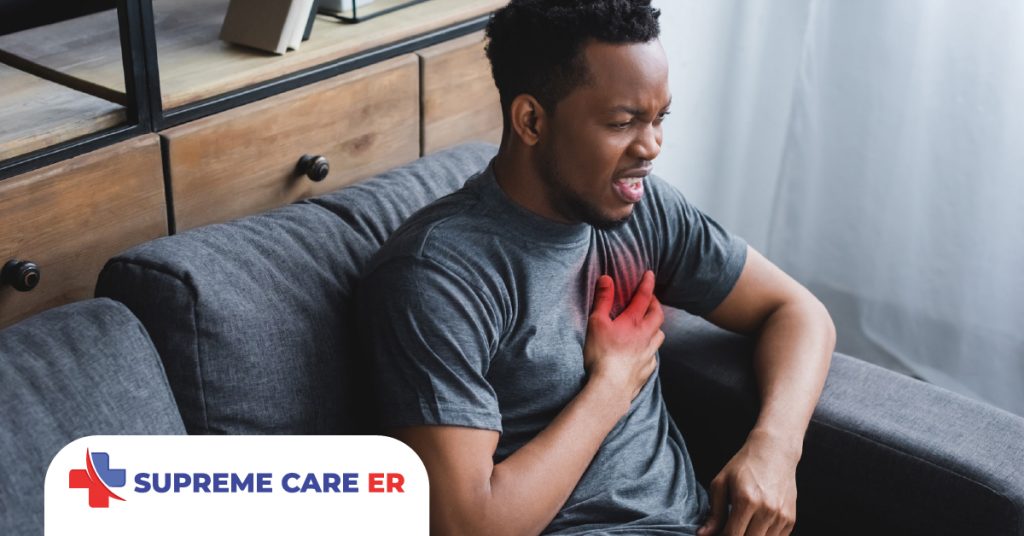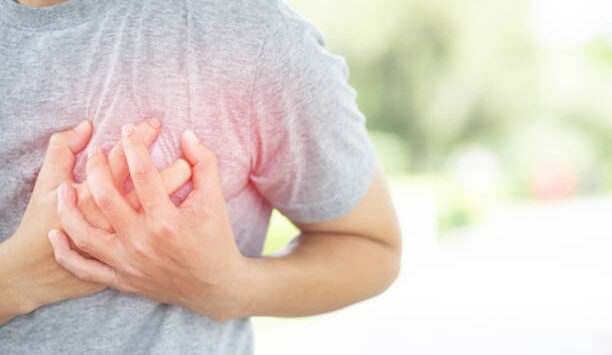According to the Center for Disease Control and Prevention, a heart attack is one of the leading causes of death in the United States, causing at least one in every four deaths.
Heart attack, also known as myocardial infarction, occurs when a blockage in blood flow to the heart. This blockage is often a result of a build-up of fat, cholesterol, and a few other substances, which form a solid deposit in the arteries that supply blood to the heart (coronary arteries).
These plaques often burst and cause a clot that eventually blocks blood flow. The interrupted blood flow can lead to partial damage or destruction of the heart’s muscles.
Heart attack can be fatal, but its cure has dramatically improved over the years. If you want to avoid the breakdown of your heart muscles, it is crucial to be aware of the signs and symptoms of this disease.
Signs of Heart Attack
The warning signs of a heart attack include the following:
1. Chest pain or feeling of discomfort in the chest region
Around 7.6 million people visit the emergency room (ED) each year with chest pain, making it the second most common complaint in the United States.
Chest pain is the most common symptom of a heart attack. It can feel like pressure, tightness, fullness, or squeezing in your chest.
Chest pain lasts more than a few minutes, sometimes even an hour or more. Once you feel this way, seek urgent medical diagnosis immediately to help ascertain whatever the problem.
2. Shortness of breath
Shortness of breath, or orthopnea, is a common symptom of heart failure. Patients who might be having a heart attack often cannot breathe normally. Their weakened hearts cause them to have difficulty breathing even when lying flat since their hearts pump blood to the lungs less efficiently.
Pain and discomfort in the upper parts of the body
Pain in the upper part of the body is a symptom that might indicate a heart attack.
The symptoms can vary greatly, but the pain will generally start to occur when you least expect it. You may experience pain anywhere in your upper extremities, such as arms, neck, back of the head, etc.
Ensure that you know what is happening to you and immediately seek help from a medical professional if you suspect a heart attack.
3. Heartburn or abdominal pain
Heartburn and abdominal pain without chest pain, nausea, or vomiting occur almost exclusively in people who have heart disease.
The pain usually results from acid reflux and may be a symptom of an underlying problem like coronary artery disease.
While these symptoms are less severe than actual heart attack symptoms, think of their warning. If you have heartburn and abdominal pain, tell your doctor about it.
4. Lightheadedness or sudden dizziness
A sensation of lightheadedness or sudden dizziness is a sign of a heart attack. A previous heart attack usually causes it.
Many heart attacks are not life-threatening and may even feel like severe indigestion or gas pains. If you feel lightheaded or ill during these symptoms, do not wait to call 911 immediately.
5. Fatigue
If you find that you feel exhausted or weak after doing activities that you ordinarily do without a problem — walking up and down stairs or carrying groceries from the car — see your doctor as soon as possible.
It can be a symptom of heart disease for women to experience extreme fatigue or unexplained weakness for days on end.
6. Cold sweat
Cold sweat occurs when the body is battling high internal temperature. This condition is a cause of cardiac arrest, which can be fatal if not treated on time.
Dial 9-1-1 immediately if you or someone around you has a heart attack. It is critical to seek emergency treatment as soon as possible to reduce the amount of damage to the heart muscle.
At the Supremecare ER, our physicians can determine if a heart attack happens and recommend the most appropriate treatment.
Some heart attacks require cardiopulmonary resuscitation (CPR) or an electric shock (defibrillation) to get them going again. Bystanders who know CPR or have access to a defibrillator may be able to help until emergency medical personnel arrive.
Remember, the sooner you receive emergency treatment, the better your chances of survival.





